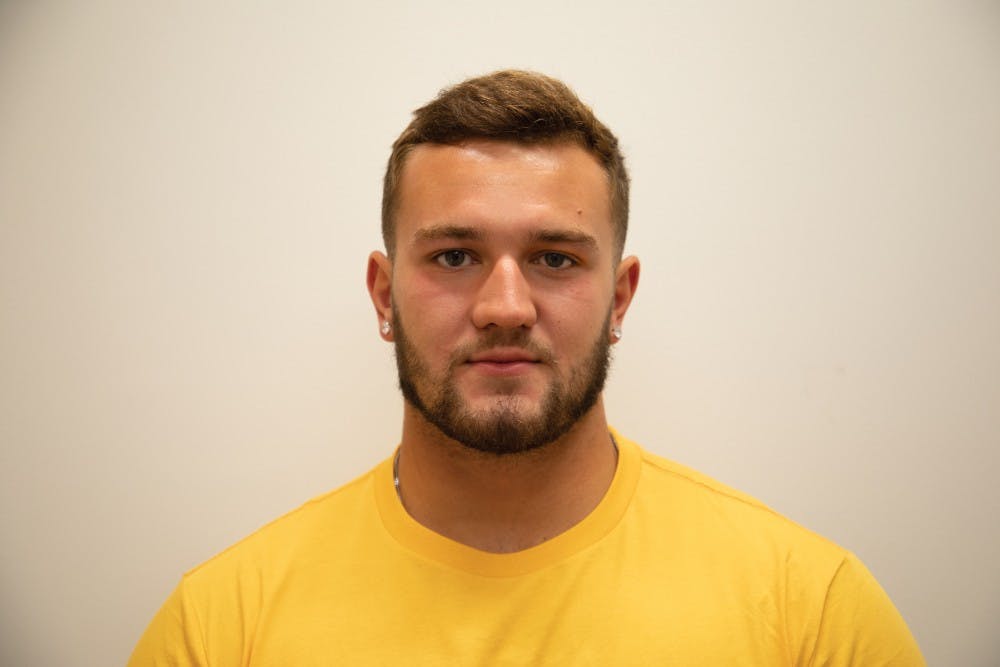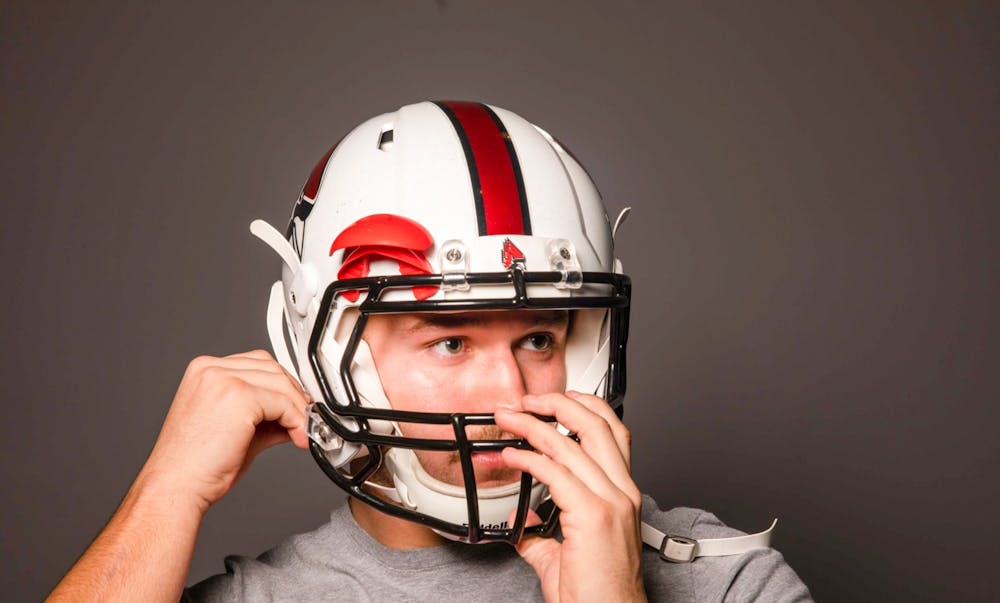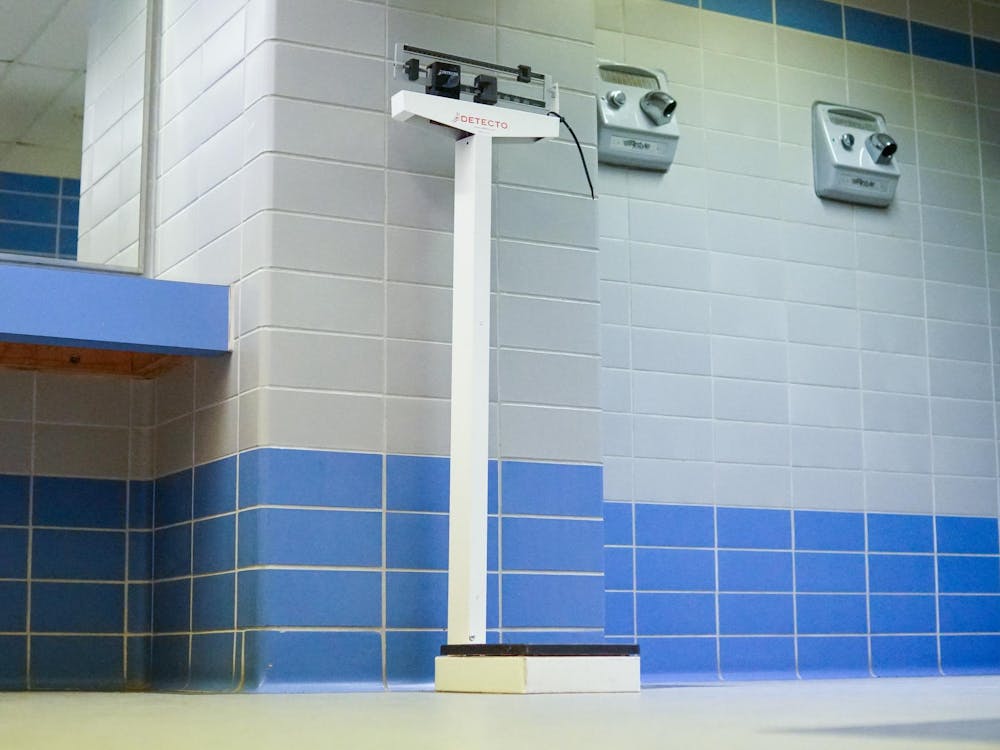
Mitchell Carter is a junior journalism major and writes “MitchSlap" for The Daily News. His views do not necessarily reflect those of the newspaper.
So, you’ve signed up little Robert for tee ball, and before long, you realize your child is good. Not just good — this kid is going to be the next Derek Jeter. So, naturally, you take the next step and install a full baseball infield in your basement, spend every weekend at the batting cages and travel all over the country competing in prestigious Little League tournaments. After all, you want to give your little champion the best chance at getting that college scholarship and set them up for a beautiful, storied career in the MLB, right?
Research shows you’re far from correct, and you may actually be pushing your child in the wrong direction entirely.
There are nearly 8 million student-athletes at the high school level in the United States, according to the NCAA. Whether you sign your child up for gymnastics, football, basketball, marching band or badminton, sports have the unique ability to provide a dramatically positive impact on a child. Sports offer an increase in motor skills and physical prowess. They also get kids active, which reduces the risk of obesity, helps kids develop healthy bones and ligaments and provides them with a greater ability to relax, which leads to less chronic muscular tension. Children can improve their sleep, develop social skills, maintain discipline and grow their own self-esteem simply by participating in sports, no matter the skill level.
Once they get into sports, many parents think their children are the best, and there’s nothing wrong with that. The line becomes blurred between support and obsession, though — when the parent begins to live vicariously through their children. A parent forcing their child to specialize in one sport in the hopes of getting college coaches to take notice of them is one of the most detrimental things one can do for their child and their well-being.
According to the American Medical Society for Sports Medicine, a sports specialization survey at UCLA found that 88 percent of the Division I athletes they surveyed participated in an average of two to three sports as children. The idea that a college pipeline exists at the age of 12 and the only way to get exposure is to compete year-round in your sport of choice is simply wrong. Another study by the American Medical Society for Sports Medicine on Olympians in Germany found that, on average, the athletes participated in two other sports during childhood before or during participation in their main Olympic sport.
Both of these studies support the idea of sports diversification in adolescence — not specialization. Supplementing your child’s practices with professional private coaching is unnecessary, and the risk you run with injuring your child isn’t worth what little physical reward is gained.
I have sports to thank for opening numerous doors for me in my own life. I participated in a wide variety of sports growing up, and it allowed me to make friends, boost my own personal confidence and stay healthy — both physically and mentally. While I only participate in one sport now, I have the number of sports I played growing up to thank for the opportunity to specialize at a high level. I also have my parents to thank for never pushing me in any one specific direction. Rather, they let me explore and find things I liked.
Instead of focusing on specializing, I diversified, and I believe that is what led me to a collegiate football career. Many of my teammates and personal friends come from similar sports backgrounds; rarely will you find collegiate athletes who have only ever participated in their respective sport.
There are a lot of issues that come along with specializing in just one sport, especially those who specialize at a young age. A clinical case study by the American Journal of Sports Medicine stated, “There is an independent risk of injury and serious overuse injury in young athletes who specialize in a single sport.” Children who specialize in a singular sport are 81 percent more likely to experience an overuse injury.
Physical injuries aside, the mental toll sport specialization can take on a child may be even worse. We see professional athletes retire all the time — their bodies giving out on them and not allowing them to compete at a high level anymore.
What happens when a kid retires?
Their young minds and bodies are tired of doing the same thing day in and day out. Things become gray when parents cross the line between encouraging, or even coaching, their children to living vicariously through them. Suddenly, that fastball has lost its pop, that breaststroke has a little less gusto or there’s no more knee-drive in that tackle.
Specialization is inevitable when sports reach the collegiate and professional levels, but it’s not necessary to be pushed at a young age. When sports transfer from “fun” to “a job” for a child, something is wrong in the algorithm.
Contact Mitchell Carter with comments at macarter@bsu.edu.





